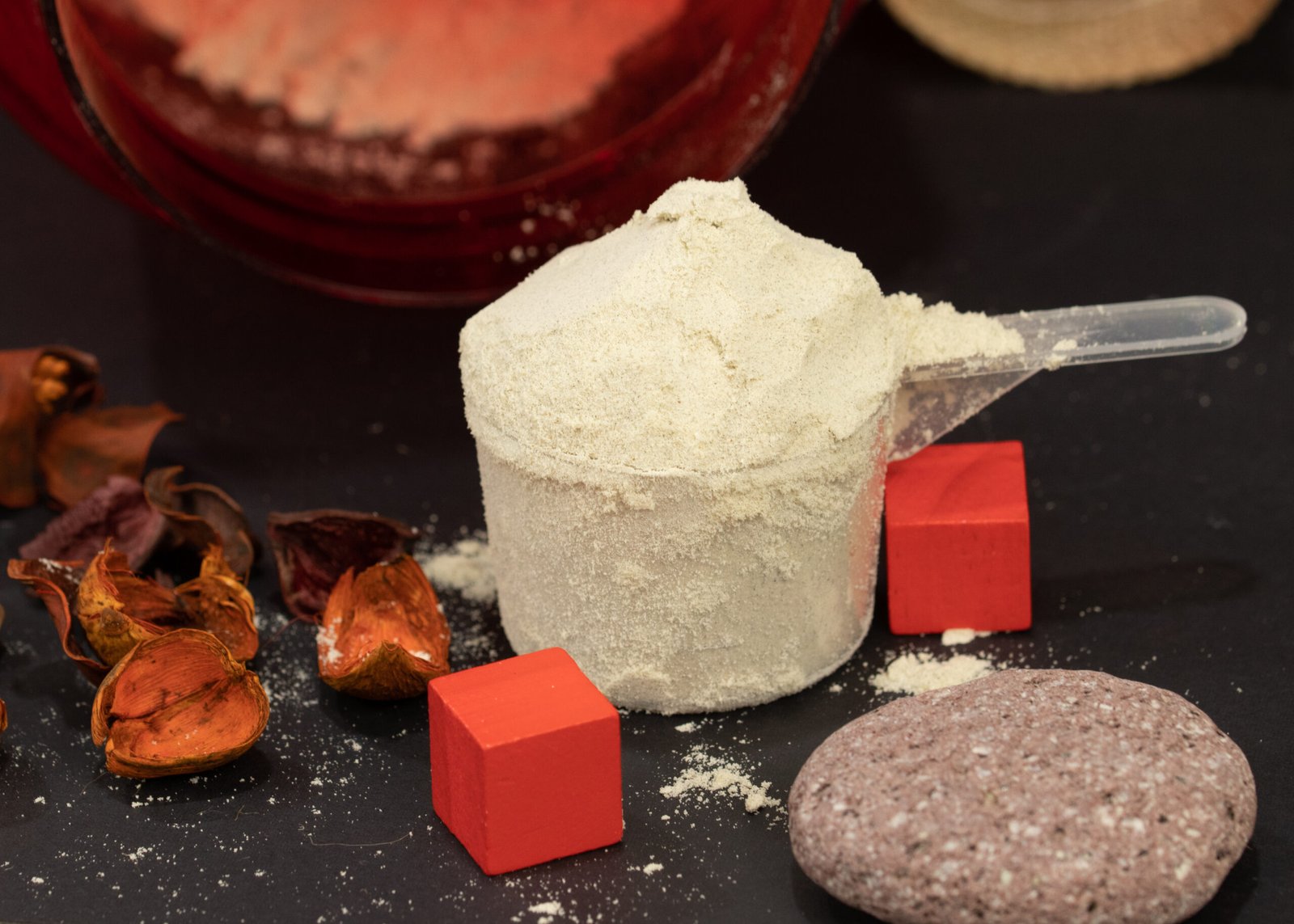Recovering properly after a workout is just as crucial as the workout itself. Understanding and implementing effective strategies for post-workout recovery can significantly enhance your fitness journey and safeguard against burnout. Many fitness enthusiasts often overlook the importance of recovery, leading to fatigue and plateaued progress. This guide aims to elucidate several practical and scientifically-backed strategies that can facilitate optimal recovery, empowering you to achieve your fitness goals with greater efficiency and sustainability.
Tips to Maximize Muscle Recovery
Muscle recovery is fundamental for achieving peak fitness performance, and it doesn’t happen by chance. Prioritizing rest and ensuring ample sleep are foundational elements in this process, as they allow muscles to repair and rebuild. Sleep cycles facilitate the release of growth hormones essential for tissue recovery, making quality rest a non-negotiable aspect of any recovery strategy. Establishing a routine that includes 7-9 hours of uninterrupted sleep can drastically improve recovery, athletic performance, and overall well-being.
Hydration is another cornerstone for effective muscle recovery, playing a crucial role in nutrient transport and the reduction of cramps. Water helps transport essential nutrients that muscles need to rebuild, while regulating body temperature and removing waste products. Staying consistently hydrated before, during, and after workouts ensures that these processes occur unimpeded, reducing the likelihood of muscle soreness and enhancing overall recovery.
Balanced nutrition, with an emphasis on protein intake, supports muscle repair. Proteins provide the amino acids necessary for muscle tissue synthesis, aiding in the repair of damage caused by exercise. Incorporating adequate protein into your meals or snacks can facilitate muscle recovery and growth.
Maximizing Recovery Through Active Techniques:
Aside from passive recovery techniques like sleep and nutrition, incorporating active recovery exercises can significantly bolster recovery outcomes. Engaging in activities such as stretching and light cardio increases blood flow to muscles, delivering oxygen and nutrients while removing metabolic waste. These exercises mitigate soreness and maintain flexibility, paving the way for improved physical performance in future workouts.
Incorporating relaxation techniques such as massage or foam rolling can help alleviate muscle tightness. These practices enable muscle relaxation and reduce build-ups that often cause discomfort or stiffness. By integrating these methods into your routine, recovery becomes a proactive process, maintaining muscle elasticity and flexibility.
– Rest and Sleep: Aim for 7-9 hours of uninterrupted sleep to support growth hormone release and muscle recovery.
– Proper Hydration: Maintain optimal hydration before, during, and after workouts to ensure effective nutrient transport and muscle cramp reduction.
– Balanced Nutrition: Emphasize protein intake in post-workout meals for muscle repair and energy restoration.
– Active Recovery Exercises: Include activities like stretching and light cardio to increase blood flow and alleviate soreness.
– Relaxation Techniques: Utilize massages or foam rolling to alleviate muscle tightness and enhance recovery.
Implementing these strategies will create an environment in which your muscles can recover more effectively, leading to enhanced performance and reduced risk of injury over time.
Post-Workout Recovery Strategies
| Recovery Strategy 🔄 | Description 📖 | Benefits 🌟 | Examples 📝 |
|---|---|---|---|
| Rest and Sleep 😴 | Ensure 7-9 hours of uninterrupted sleep for muscle repair and energy restoration. | Promotes growth hormone release, enhances overall well-being, improves athletic performance. | Nightly sleep routine, minimizing screen time before bed. |
| Hydration 💧 | Stay hydrated pre-, during, and post-workout to aid nutrient transport and waste removal. | Reduces cramps, aids nutrient absorption, maintains optimal body temperature, and mitigates soreness. | Water, electrolyte drinks, hydration apps. |
| Balanced Nutrition 🍲 | Emphasize protein intake post-workout for muscle repair and energy replenishment. | Speeds up muscle recovery, aids in muscle growth, maintains energy levels for future workouts. | Lean meats, dairy, tofu, legumes. |
| Active Recovery 🚶♂️ | Engage in low-intensity activities like stretching and light cardio to increase blood flow to muscles. | Alleviates soreness, maintains flexibility, prepares muscles for upcoming workouts. | Yoga, brisk walking, gentle cycling. |
| Massage & Foam Rolling 💆♀️ | Relax muscles, relieve tightness, and reduce discomfort through self-massage tools or professional massage. | Maintains muscle elasticity, prevents stiffness, enhances blood flow for efficient recovery. | Foam roller, massage guns, sports massage sessions. |
| Lean Proteins 🍗 | Consume proteins post-exercise to optimize muscle synthesis and recovery. | Provides essential amino acids for muscle repair, reduces soreness, accelerates muscle regrowth. | Chicken, fish, tofu, protein shakes. |
| Complex Carbohydrates 🍞 | Replenish glycogen stores with nutrient-dense carbs post-workout. | Restores energy, supports rapid recovery, reduces post-exercise fatigue. | Whole grains, fruits, sweet potatoes. |
| Healthy Fats 🥑 | Include healthy fats to reduce inflammation and aid in hormone production. | Supports cellular health, reduces inflammation, aids in long-term recovery. | Avocados, nuts, olive oil. |
| Electrolyte Drinks 🥤 | Replenish lost minerals to restore fluid balance and support muscle function. | Improves rehydration, prevents dehydration-related fatigue, enhances recovery outcomes. | Sports drinks, coconut water, electrolyte tablets. |
| Protein-Carbohydrate Combo 🥤 | Pair proteins with carbs post-workout for enhanced recovery and nutrient absorption. | Boosts insulin response, accelerates glycogen replenishment, supports muscle repair. | Protein shake with fruit, chicken with rice, yogurt with honey. |
| Supplements 💊 | Incorporate recovery aids like protein powders, BCAAs, and creatine for extra support. | Increases protein synthesis, reduces muscle fatigue, enhances energy levels and endurance. | Whey protein, BCAA supplements, creatine monohydrate. |
| Mindfulness & Relaxation 🧘♂️ | Incorporate mental wellness practices to prevent burnout and maintain motivation. | Supports long-term fitness adherence, reduces stress, promotes holistic recovery. | Meditation, breathing exercises, journaling. |
| Avoid Excess Caffeine ☕ | Limit caffeine post-workout to prevent sleep disruption and support optimal recovery. | Ensures better sleep quality, reduces fatigue, promotes muscle repair through adequate rest. | Herbal teas, decaf drinks, post-exercise hydration with water. |
| Tobacco-Free Lifestyle 🚭 | Avoid tobacco to optimize oxygen flow and nutrient absorption, enhancing recovery. | Improves cardiovascular health, prevents nutrient absorption interference, supports efficient muscle healing. | N/A |
Foods
Nutrition plays an integral role in recovery, with various foods offering unique benefits to post-workout recuperation. Lean proteins such as chicken, fish, and tofu provide essential building blocks for muscle repair and growth. Consuming these proteins shortly after exercising optimizes muscle synthesis and reduces the risk of prolonged soreness by supplying necessary amino acids quickly.
Complex carbohydrates are critical for replenishing energy stores depleted during workouts. Foods like whole grains, fruits, and vegetables not only provide sustained energy but also support faster recovery due to their nutrient density. These carbohydrates are the primary fuel source during high-intensity exercise, and replenishing them ensures that your body can continue functioning optimally.
Healthy fats, sourced from avocados, nuts, and olive oil, aid in reducing inflammation and promoting recovery. Adding these nutrient-rich fats into your diet can help maintain hormone production and cellular health, which are vital for repairing muscle tissues efficiently. Moreover, staying hydrated with water and electrolyte-rich drinks restores lost fluids and electrolytes, facilitating seamless physiological function.
Meal timing and composition also play a significant role in recovery. Consuming the right balance of protein, carbs, and fats post-workout maximizes nutrient absorption and aids in holistic recovery, preparing the body for upcoming sessions.
– Lean Proteins: Chicken, fish, and tofu support muscle repair and growth.
– Complex Carbohydrates: Whole grains, fruits, and vegetables replenish energy stores.
– Healthy Fats: Avocado, nuts, and olive oil reduce inflammation.
– Hydration: Adequate water and electrolyte intake restore fluids and optimize recovery.
– Timing: Consuming balanced meals soon after workouts enhances nutrient absorption.
Adopting a nutrition strategy that includes these elements will significantly enhance the body’s ability to recover and improve athletic performance.
Protein Post-workout
Protein is synonymous with muscle recovery, and its consumption post-workout can significantly influence recovery outcomes. After a workout, muscles are particularly receptive to protein-rich nourishment, which aids in repair and growth by supplying essential amino acids. Consuming protein shortly after exercise also helps replenish depleted energy stores, thereby enhancing muscle recovery and reducing fatigue.
The timing of protein intake is critical for maximizing its benefits—consuming it within 30 to 60 minutes post-exercise is optimal. This period reflects a window where nutrient uptake is heightened due to increased blood flow and muscle sensitivity to insulin. Moreover, combining protein with carbohydrates can further enhance muscle repair by boosting the insulin response, promoting nutrient transport directly into muscle tissues.
Incorporating protein-rich snacks or shakes post-workout is an easy and effective way to take advantage of this recovery window. Options such as a protein smoothie or a chicken salad can help reduce muscle soreness and fatigue more efficiently.
– Timing: Consume protein within 30-60 minutes post-exercise for optimal absorption and benefits.
– Protein-Carbohydrate Combo: Pairing them enhances insulin response, improving nutrient uptake.
– Post-workout Snacks: Consider protein shakes or salads for convenient recovery support.
Utilizing these strategies ensures that muscles recover efficiently, paving the way for improved performance in subsequent workouts.
Protein Pre-workout
While post-workout protein is celebrated, consuming it before exercise also offers substantial benefits for muscle recovery. Pre-exercise protein intake can supply essential amino acids to muscles during exercise, improving overall muscle recovery. It promotes muscle protein synthesis, fostering faster repair and growth post-workout.
Pre-workout protein stabilizes energy levels by providing a steady release of amino acids, allowing for sustained performance. Combining proteins with carbohydrates before working out further boosts glycogen storage, enhancing endurance and performance capabilities. Personalizing protein intake based on exercise intensity and individual needs ensures that nutritional strategies align with specific recovery goals and fitness objectives.
– Improved Recovery: Amino acids supplied during exercise promote faster muscle recovery.
– Energy Stabilization: Provides a consistent release of energy to sustain workouts.
– Personalization: Tailor intake to match individual intensity and fitness goals.
By integrating pre-workout protein into your routine, recovery can be optimized even before the workout commences, thereby ensuring ongoing support for your fitness journey.
Carbohydrates Post-workout
Carbohydrates are indispensable for post-workout recovery due to their role in replenishing glycogen stores. These stores are depleted during exercise, and replenishing them is crucial for muscle recovery and reducing fatigue. Consuming carbohydrates soon after a workout can accelerate recovery while reducing muscle stiffness.
Like protein, timing carbohydrate intake within the 30-60 minute window post-exercise is vital to optimizing glycogen replenishment. Pairing carbohydrates with protein not only augments muscle repair but also stimulates a greater insulin response, facilitating faster nutrient transport to muscles.
Opting for easily digestible carbohydrate sources such as fruits, sports drinks, or whole grains ensures quick absorption, streamlining the recovery process. These foods offer a rapid glucose release, replenishing energy stores effectively.
– Glycogen Replenishment: Consume carbohydrates within 30-60 minutes to maximize recovery.
– Pair with Protein: Enhance muscle repair with boosted insulin response.
– Quick Absorption: Choose easily digestible sources like fruits and sports drinks.
Integrating a strategic carbohydrate consumption plan ensures that energy levels remain high and recovery is expeditious, fostering continual athletic improvement.
Eat an Overall Balanced Diet
A balanced diet rich in essential nutrients forms the backbone of effective muscle recovery. Providing a diverse array of foods ensures that your body receives all of the vitamins, minerals, and nutrients needed for optimal function and recovery. Incorporating lean proteins, complex carbohydrates, and healthy fats within your dietary framework supports muscle repair and energy replenishment.
Focusing on nutrient-dense options such as fruits, vegetables, whole grains, and nuts not only supports bodily health but also enhances recovery capabilities. These foods offer bioactive compounds and antioxidants that reduce inflammation, helping your body recuperate faster. Adequate hydration, an often overlooked aspect of a balanced diet, is critical for muscle repair and reducing workout-induced fatigue.
Adjusting portion sizes and food choices based on individual energy requirements and workout intensity personalizes recovery strategies, supporting fitness goals more effectively. With varied diet plans, individuals can tailor their nutritional intake to suit their unique needs—ensuring recovery remains optimal.
– Nutrient-Dense Foods: Emphasize fruits, vegetables, and whole grains for essential nutrients.
– Customization: Adjust diet to match energy needs and workout intensity.
– Hydration: Integral in muscle repair and fatigue reduction.
Committing to an overall balanced diet ensures that the body has all it needs for effective recovery, enhancing both immediate and long-term fitness achievements.
Stay Hydrated
Staying hydrated is fundamental to muscle recovery and overall well-being. Consuming sufficient water supports post-exercise muscle repair and mitigates soreness by maintaining proper circulation and body temperature. Hydration aids detoxification processes, ensuring that waste products generated during workouts are removed efficiently.
Post-exercise, replacing fluids lost through sweat is paramount in preventing dehydration-related fatigue. Proper hydration also optimizes nutrient transportation, essential for effective recovery and recuperation. Enhancing hydration with electrolyte-rich fluids can further support recovery by replenishing lost salts and minerals that are critical to muscle function.
– Optimal Circulation: Proper hydration maintains circulation and temperature, aiding recovery.
– Prevent Fatigue: Timely fluid replacement prevents dehydration-induced exhaustion.
– Enhanced Hydration: Include electrolyte beverages to restore mineral balance.
Incorporating these hydration strategies into your recovery routine solidifies the foundational elements needed to ensure recovery remains both efficient and effective.
Supplements
Supplements can provide a valuable boost to post-workout recovery, aiding in the repair and growth of muscle tissue by supplying essential nutrients. Protein powders, BCAAs (Branched-Chain Amino Acids), and creatine are among the most popular supplements utilized by those seeking enhanced recovery.
Protein supplements, particularly effective when consumed after exercise, support muscle repair and increase muscle mass through their high amino acid content. BCAAs are renowned for diminishing muscle fatigue and soreness, making them ideal for individuals engaged in rigorous exercise. Creatine, an energy trinity, helps replenish ATP levels, facilitating energy-intensive activities and supporting swift recovery.
– Protein Powders: Effective for muscle repair when used post-workout.
– BCAAs: Reduce fatigue, enabling enhanced recovery from intense workouts.
– Creatine: Boosts energy and assists efficient recovery.
Supplement incorporation can significantly complement your recovery strategy, enriching muscle repair and growth processes with specialized nutrients.
Creatine Monohydrate
Creatine monohydrate stands out as a potent supplement that enhances muscle recovery and strength gains post-workout. This popular supplement helps replenish ATP levels, providing energy for intensive exercise and speeding up recovery time.
Research indicates that creatine use reduces muscle cell damage and inflammation post-exercise. Regular consumption can improve performance, boost muscle mass, and promote overall recovery effectiveness. By incorporating creatine monohydrate into your routine post-exercise, you can leverage its benefits to optimize recovery outcomes.
– ATP Replenishment: Provides energy for intense workouts and hastens recovery.
– Inflammation Reduction: Minimizes cellular damage and post-exercise inflammation.
– Performance and Mass: Improves strength, muscle gains, and recovery.
Choosing creatine monohydrate as part of a recovery regimen is a savvy choice for those committed to maximizing workout gains.
Protein Powder
Protein powder serves as a convenient, efficient means of supplying the nutrients necessary for muscle repair and growth. As exercise depletes amino acids, restoring them is crucial for recovery. High-quality protein powders, like whey or plant-based options, provide these amino acids effectively.
Incorporating protein powder into your post-workout nutrition can elevate muscle protein synthesis, fostering muscle mass, strength, and recovery enhancement. Opting for quality protein powders ensures dietary preferences are respected, optimizing nutritional benefits while aligning with health goals.
– Nutrient Delivery: Supplies essential amino acids for repair and growth.
– Synthesis Enhancement: Elevates protein synthesis, advancing muscle development.
– Quality Options: Choose whey or plant-based powders for optimal dietary compatibility.
Protein powder is an invaluable component for those seeking to enhance recovery, offering both convenience and effectiveness in muscle support.
Lifestyle
A lifestyle that prioritizes recovery goes beyond physical strategies to encompass holistic well-being. Key factors such as sleep, nutrition, active recovery, and mental health hold equal importance in fostering effective post-workout recovery.
Getting sufficient sleep is paramount, as it aids muscle recovery while replenishing energy post-exercise. Staying hydrated and maintaining a balanced diet abundant in proteins, vitamins, and minerals further optimizes recovery capabilities. Incorporating active recovery techniques like stretching, yoga, or light walking can reduce muscle soreness, harmonizing physical restoration with improved flexibility.
Tools such as foam rollers or massage guns can alleviate tension and promote blood flow, speeding up recovery. Equally crucial is attending to mental well-being; practices like mindfulness or meditation can stave off burnout and maintain motivation, essential for long-term fitness success.
– Sleep Prioritization: Essential for energy restoration and muscle recovery.
– Balanced Diet and Hydration: Fuel physiological recovery and reduce fatigue.
– Active Recovery Techniques: Enhance flexibility and maintain muscle health.
– Mental Well-being: Use mindfulness to prevent burnout and sustain motivation.
Living a recovery-oriented lifestyle ensures a comprehensive approach that encompasses both physical and mental health, maximizing recovery and reducing fitness-related burnout.
Things to Avoid
Excess Caffeine
While a morning coffee or pre-workout energy drink might provide that much-needed boost, it’s essential to be mindful of caffeine consumption post-workout. Excessive caffeine can interfere with sleep patterns, causing restlessness or insomnia, which undermines the recovery process. Adequate sleep is crucial for muscle repair and performance improvement. Instead of caffeinated beverages, consider hydrating with water or consuming herbal teas that promote relaxation and support recovery. Choosing the right drinks after a workout can significantly impact muscle regrowth and energy replenishment.
Tobacco
Tobacco use is another habit to steer clear of when focusing on post-workout recovery. Smoking or using tobacco products can severely hamper your body’s ability to recover by reducing oxygen flow to your muscles, thereby slowing the healing process. Steer clear of tobacco to maintain optimal cardiovascular health, which is crucial for efficient muscle repair and growth. The chemical components in tobacco may also interfere with the absorption of essential nutrients, further hindering recovery. By eliminating tobacco from your lifestyle, you enhance your body’s capacity to bounce back from workouts more swiftly and effectively, setting the stage for improved performance and significant fitness gains. Prioritizing a tobacco-free lifestyle is not only beneficial for your recovery but also advantageous for your overall long-term health, making it a cornerstone in any successful post-workout recovery strategy.













